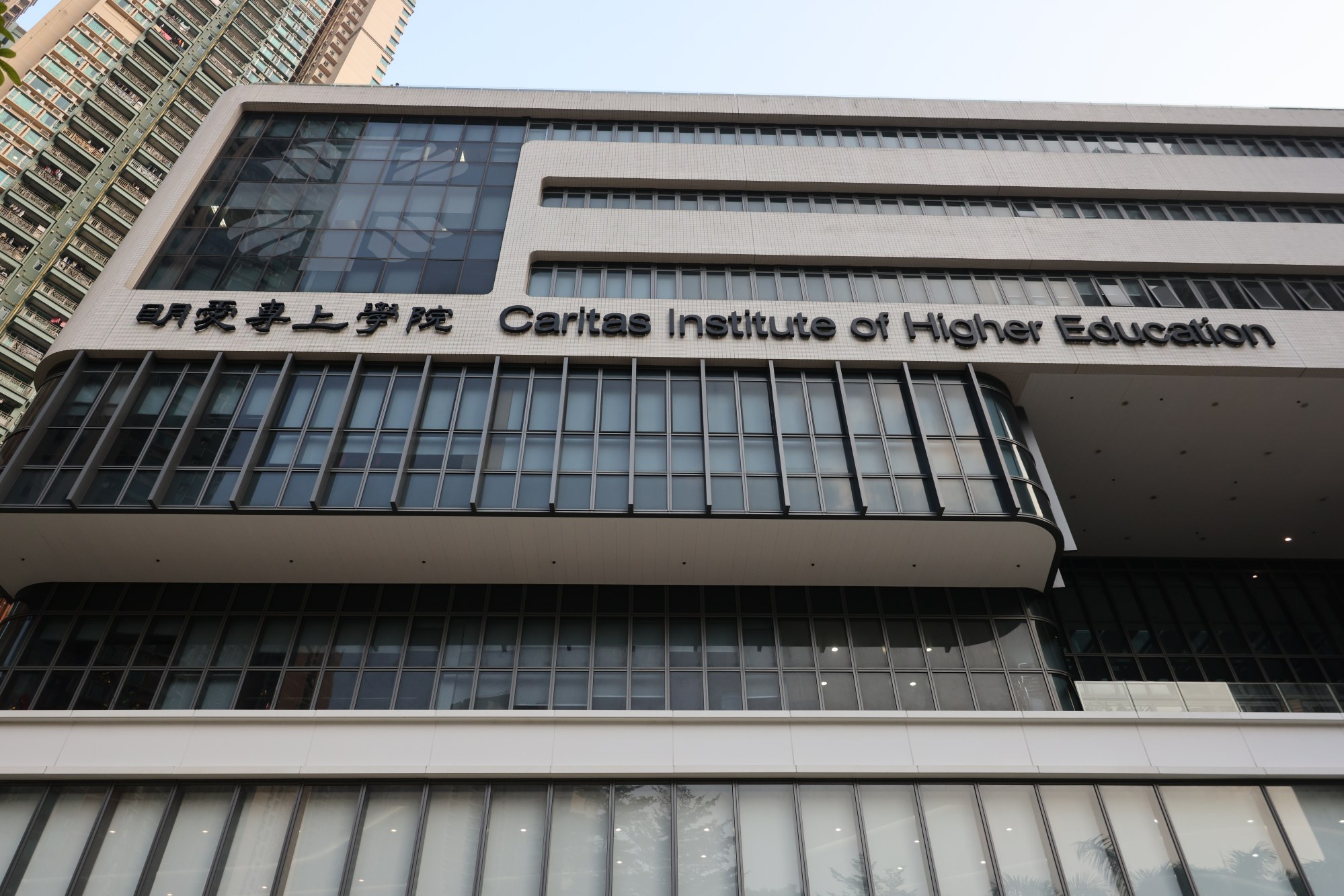
Hong Kong’s first Catholic university seeks up to HK$800 million to build new Sha Tin campus
- Vice-president of Saint Francis University says current campus in Tseung Kwan O has reached full capacity and institution must expand to help bring in more students
- Proposed site was home to now-closed Caritas Hong Kong-run educational institution and secondary school, with proximity to Prince of Wales Hospital
Hong Kong’s first Catholic university plans to raise up to HK$800 million (US$102 million) to fund the construction of a new campus in Sha Tin, days after receiving its varsity status from the government.
Professor Lo Tit-wing, vice-president of Saint Francis University, on Monday said the current campus in Tseung Kwan O had reached full capacity and the institution needed to expand its facilities to help bring in more students.
The proposed site belongs to the university’s operator, Caritas Hong Kong, and was previously home to the Sha Tin branch of the Caritas Institute of Community Education and the Caritas Shatin Marden Foundation Secondary School before they closed in 2020 and 2008, respectively.
“It would be better to demolish all the current buildings on the [Sha Tin] lot, which is owned by Caritas, as we could make good use of the land and have a larger capacity,” he told a press briefing.
The institution said it aimed to raise between HK$700 million and HK$800 million for the project, but Lo stressed that it was too early in the process to go into concrete details.
The university, previously known as the Caritas Institute of Higher Education, earlier this month received the go-ahead to become the city’s first Catholic university.
Founded in 1985 as Caritas Francis Hsu College, the institution is also Hong Kong’s fourth private university.
The varsity’s Tseung Kwan O campus spans about 7,500 square metres (80,000 sq ft) and has a total gross floor area of around 30,000 square metres. The site was completed in 2017 and cost about HK$800 million to build.
The site of the proposed Sha Tin campus spans about 5,000 square metres.
The university’s vice-president said the expansion was necessary as the current facilities at the old campus could not accommodate any more students amid a government push to find more workers for health-related industries.
Lo also said it was currently not a good time to approach the business sector for funds.
“The economy in Hong Kong is bad now,” he said. “In the past, big enterprises were generous in donating money and it is now difficult for us to raise such a great deal of money.”
Seeking funds from the Catholic diocese of Hong Kong, which founded Caritas Hong Kong, was also not an option since it relied on donations from its community, he added.

Professor Susana Yuen Lai-mei, head of the university’s department of business and hospitality management, said one option was basing the varsity’s health-related facilities in Sha Tin because of the site’s proximity to the Prince of Wales Hospital, one of the city’s largest.
The university will introduce three new courses in the coming academic year: a bachelor’s programme in language and culture, another in applied hotel and tourism management, and a master’s degree in nursing and allied health.
The department head said the university would also allow mature students with three or more years of work experience studying hospitality to complete their studies in two years before earning a degree.
Vice-president Lo said the hospitality programme would focus on practical elements since the university was considering becoming a university of applied sciences (UAS), a type of institution proposed by the city leader during his annual policy address in October.
Education authorities last Friday revealed they would announce the criteria for postsecondary institutions to receive UAS status later this month.
Professor Chan Sin-wai, the school dean for humanities and languages, said the university was also focused on exploring techno-humanities, which merged the two fields and was seldom explored by other tertiary institutions.
“Our translation studies are not just Chinese to English or English to Chinese, our programme focuses on multi-language translation with the help of technology,” he said.
“Graduates will not be purely arts students, they will also know how technology helps translation as Hong Kong wants to tap the market in Belt and Road Initiative.”
The initiative refers to Beijing’s ambitious plan to link economies in Asia, Europe and Africa into a China-centred trade network.

